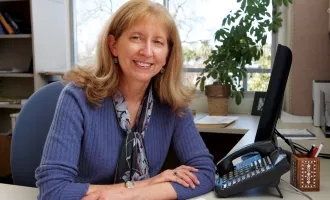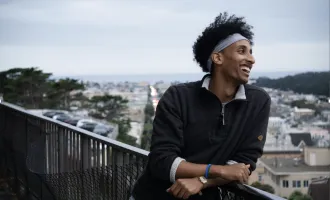
This Date in UCSF History: How Do You Celebrate Lunar New Year?
Originally published on January 31, 1989.
ThuyMinhDo, Third-year pharmacy student: If I was home, the house would be festive, with apricot blossoms (“hoa mar” a symbol of Tet and spring). There would be the sweet smell of incense and flowers and food — lots of it Then everyone would be dressed in their newest and best clothes. First thing in the morning, we would take turns extending new year wishes and all of us kids would get good luck money. Then we’d just hang around the house waiting for visitors to come. By the afternoon, we’d go to visit relatives and friends to give more wishes and get more money. And we’d play card games and sometimes I ‘d lose all my money. But now, being in the middle of midterms, I’ 11 treat myself to a facial scrub and a festive lunch and take it easy on New Year’s Day.
Ann Chen, Second-year nursing student: I’ll just get together with a bunch of friends, have a really big dinner, wish everybody a smooth graduation and chat Maybe we’ll eat water dumplings — one of the dumplings has a coin in it, and the person who gets the coin will be very lucky next year. In Taiwan, the children stay up the whole night of New Year’s Eve. This is for their parents’ longevity and health. New Year’s Eve, the family gets together, and we eat fish —intentionally leaving over a part of the fish. This means that the coming year will be more prosperous. On the second day of January, any daughter who got married can visit her family. She has to spend New Year’s Eve and New Year’s Day with her husband’s family. The children cannot say anything bad during the New Year’s celebration, which actually lasts 15 days. And you cannot clean the house on New Year’s Day because that would be like cleaning out your fortune.
Dana Wu, Third-year pharmacy student: We have firecrackers. We get those red envelopes with money inside from the elderly. Everybody wears new clothes. There’s a lot of food and certain foods are traditional at new year’s, like the sweet rice cake.
Monica Soo Lee, Third-year pharmacy student: There’s a special soup made of white rice cake. We all go out and visit relatives wearing our Korean costumes. We bow and little kids get money. We play the “Yut” game which is a game with four sticks, where one side is flat and the other is round.
Will Wong, First-year medical student: Chinese New Year is an excuse for relatives to get together and eat lots of special foods like moon cakes. We all eat bowls of noodles— they’re really long for long life— with two eggs. The long noodles and the two eggs symbolize 100, again for long life. Then red bags of money are given out. The people who are married give them to those who are unmarried. We have firecrackers, too.
Hee-JungKim, First-year dental student: We dress up in our Korean costumes, visit our relatives. We give them New Year greetings and do formal bows. They give us money in return. We hold ceremonials for close relatives who have passed away. Special foods are prepared that morning like rice cake, special soups, vegetables, all kinds of meats and pastries. There’s color coordination with all this, too. After die ceremony and formal exchanges, we play traditional games like “Yoot,” which is like an old Korean version of Monopoly. It’s just a big family get-together, for relaxation, to be with everyone and renew feelings of kinship.
Donna Chen, First-year medical student: Chinese New Year Day comes on my grandfather’s birthday, so it’s a dual celebration. Relatives come from all over, even Hong Kong and Canada, to celebrate. On New Year’s Day, you bow three times, say “Happy New Year,” and get a little bag of money. The little kids have lots of fun; it’s like Halloween with a lot of special foods.



